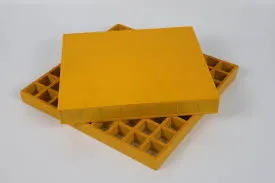
-
 Afrikaans
Afrikaans -
 Albanian
Albanian -
 Amharic
Amharic -
 Arabic
Arabic -
 Armenian
Armenian -
 Azerbaijani
Azerbaijani -
 Basque
Basque -
 Belarusian
Belarusian -
 Bengali
Bengali -
 Bosnian
Bosnian -
 Bulgarian
Bulgarian -
 Catalan
Catalan -
 Cebuano
Cebuano -
 China
China -
 China (Taiwan)
China (Taiwan) -
 Corsican
Corsican -
 Croatian
Croatian -
 Czech
Czech -
 Danish
Danish -
 Dutch
Dutch -
 English
English -
 Esperanto
Esperanto -
 Estonian
Estonian -
 Finnish
Finnish -
 French
French -
 Frisian
Frisian -
 Galician
Galician -
 Georgian
Georgian -
 German
German -
 Greek
Greek -
 Gujarati
Gujarati -
 Haitian Creole
Haitian Creole -
 hausa
hausa -
 hawaiian
hawaiian -
 Hebrew
Hebrew -
 Hindi
Hindi -
 Miao
Miao -
 Hungarian
Hungarian -
 Icelandic
Icelandic -
 igbo
igbo -
 Indonesian
Indonesian -
 irish
irish -
 Italian
Italian -
 Japanese
Japanese -
 Javanese
Javanese -
 Kannada
Kannada -
 kazakh
kazakh -
 Khmer
Khmer -
 Rwandese
Rwandese -
 Korean
Korean -
 Kurdish
Kurdish -
 Kyrgyz
Kyrgyz -
 Lao
Lao -
 Latin
Latin -
 Latvian
Latvian -
 Lithuanian
Lithuanian -
 Luxembourgish
Luxembourgish -
 Macedonian
Macedonian -
 Malgashi
Malgashi -
 Malay
Malay -
 Malayalam
Malayalam -
 Maltese
Maltese -
 Maori
Maori -
 Marathi
Marathi -
 Mongolian
Mongolian -
 Myanmar
Myanmar -
 Nepali
Nepali -
 Norwegian
Norwegian -
 Norwegian
Norwegian -
 Occitan
Occitan -
 Pashto
Pashto -
 Persian
Persian -
 Polish
Polish -
 Portuguese
Portuguese -
 Punjabi
Punjabi -
 Romanian
Romanian -
 Russian
Russian -
 Samoan
Samoan -
 Scottish Gaelic
Scottish Gaelic -
 Serbian
Serbian -
 Sesotho
Sesotho -
 Shona
Shona -
 Sindhi
Sindhi -
 Sinhala
Sinhala -
 Slovak
Slovak -
 Slovenian
Slovenian -
 Somali
Somali -
 Spanish
Spanish -
 Sundanese
Sundanese -
 Swahili
Swahili -
 Swedish
Swedish -
 Tagalog
Tagalog -
 Tajik
Tajik -
 Tamil
Tamil -
 Tatar
Tatar -
 Telugu
Telugu -
 Thai
Thai -
 Turkish
Turkish -
 Turkmen
Turkmen -
 Ukrainian
Ukrainian -
 Urdu
Urdu -
 Uighur
Uighur -
 Uzbek
Uzbek -
 Vietnamese
Vietnamese -
 Welsh
Welsh -
 Bantu
Bantu -
 Yiddish
Yiddish -
 Yoruba
Yoruba -
 Zulu
Zulu
Durable Fiberglass Solutions for Exceptional Corrosion Resistance and Longevity in Harsh Environments
Corrosion-Resistant Fiberglass A Key to Enduring Durability
In an age where infrastructure resilience is paramount, the choice of materials plays a critical role in ensuring longevity and performance. Among these materials, corrosion-resistant fiberglass stands out as a revolutionary option that offers a blend of durability, versatility, and cost-efficiency. As industries across the globe seek innovative solutions to combat corrosion, understanding the benefits and applications of corrosion-resistant fiberglass becomes vital.
Corrosion is a natural process that occurs when materials, especially metals, deteriorate due to environmental factors like moisture, chemicals, and temperature variations. This degradation can lead to catastrophic failures in structures, machinery, and pipelines, resulting in substantial economic losses and safety hazards. Traditional materials such as steel and iron, while strong, are often vulnerable to corrosion, necessitating costly maintenance and premature replacements. In contrast, corrosion-resistant fiberglass presents a formidable alternative that can withstand a range of aggressive environments.
Fiberglass, or glass-reinforced plastic (GRP), is composed of a plastic matrix reinforced with glass fibers. This composite material showcases unique properties, including high tensile strength, lightweight characteristics, and exceptional resistance to various corrosive agents. The corrosion-resistant properties of fiberglass stem from its inherent nature; unlike metals, fiberglass does not oxidize or degrade when exposed to moisture or chemicals, significantly enhancing its lifespan.
One of the most significant advantages of corrosion-resistant fiberglass is its versatility across a multitude of industries. In the construction sector, fiberglass is widely employed for roofing, cladding, and structural components, allowing for resilient builds that endure harsh environmental conditions. The chemical industry has also embraced fiberglass due to its resistance to aggressive chemicals, making it an ideal choice for tanks, piping, and reactors. Similarly, marine applications benefit from fiberglass’s resistance to saltwater corrosion, ensuring vessels and infrastructure remain intact and functional.
'corrosion-resistant fiberglass for enduring durability.'

In addition to its physical properties, corrosion-resistant fiberglass presents logistical advantages that make it appealing to businesses. Its lightweight nature reduces transportation costs and simplifies installation processes, often requiring less labor and fewer resources than traditional materials. Moreover, fiberglass can be molded into complex shapes and sizes, providing design flexibility that is not readily achievable with metals. This adaptability allows for innovative solutions tailored to specific project requirements, redefining the possibilities of modern engineering.
An additional consideration in choosing fiberglass is its environmental impact. As the world shifts towards sustainable practices, fiberglass emerges as a favored option due to its longevity and recyclability. By reducing the frequency of replacements and maintenance interventions, industries can minimize their carbon footprints. When it comes to end-of-life, fiberglass can be recycled and repurposed, contributing to a circular economy and reducing waste.
Innovations continue to evolve the capabilities and applications of corrosion-resistant fiberglass. Advances in resin technology and composite engineering have led to the development of fiberglass variants that can withstand extreme temperatures and pressures, pushing the boundaries of what this material can achieve. Industries that require sterile environments, such as food processing and pharmaceuticals, are also beginning to adopt fiberglass due to its non-reactive nature and ease of cleaning.
In conclusion, corrosion-resistant fiberglass is transforming the landscape of durable materials. Its unique combination of strength, corrosion resistance, and design versatility addresses the challenges posed by traditional materials, paving the way for more resilient infrastructure. As industries prioritize sustainability and longevity, fiberglass stands at the forefront, offering solutions that ensure safety, reduce maintenance costs, and enhance productivity. With ongoing innovations, the future looks bright for corrosion-resistant fiberglass, promising a new era of enduring craftsmanship and reliable performance across various applications. Organizations that embrace this advanced material today are likely to reap the benefits of enhanced durability and cost savings for years to come.









